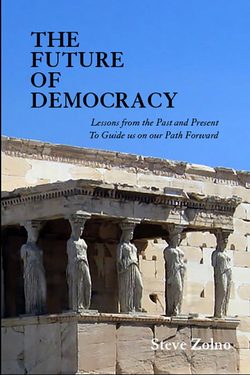Читать книгу THE FUTURE OF DEMOCRACY - Steve Zolno - Страница 10
На сайте Литреса книга снята с продажи.
The Consequences of Distrust
ОглавлениеThe openness and trust of our early years yields to more caution as we mature. As children, our parents or teachers used criticism to redirect us from ideas or behaviors they considered inappropriate. We also felt betrayed when others seem no longer worthy of our trust. Our world view changed as we internalized new values – based on what we were told and our experience – on our way to adulthood. Our values shaped our concepts of right and wrong and became our guides in determining who to trust and who not to trust.
Our assumptions about people became reflected in trusting some and distrusting or avoiding others. We become convinced that some people are to be treated warily or with hostility, often for good reason. We learned to fear them as a threat to our mental or physical well-being.
Our distrust often is based on an assumption that others are different from us. They have different backgrounds, different looks or a different outlook on life – creating a distance between “us” and “them.”
Trust seems easy between allies who focus on a common enemy. But when rebellions overthrow tyranny, distrust often develops among those who replace the old order, sometimes with the same level of intensity once focused on the tyrant.
In our daily interactions we feel either connected to – or disconnected from – those we encounter. We tend to trust some people and distrust others. We vacillate between modes of trust and distrust throughout our lives, which becomes expressed in our relationships and political institutions. We interact positively with some and confront or avoid those we mistrust.
In both our personal and political lives we find ourselves aligned with those we believe are like us – or think like us – and separate from those who are different. We become certain about the correct views that people should hold to make the world a better place, and criticize those whose views we think could potentially destroy it. Our distrust for those who we think are different can become intense as we construct a mental wall between them and us. But that wall also cuts off our communication and ability to work with others.
